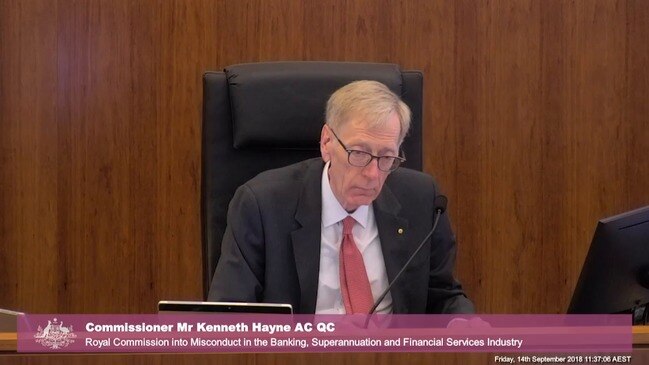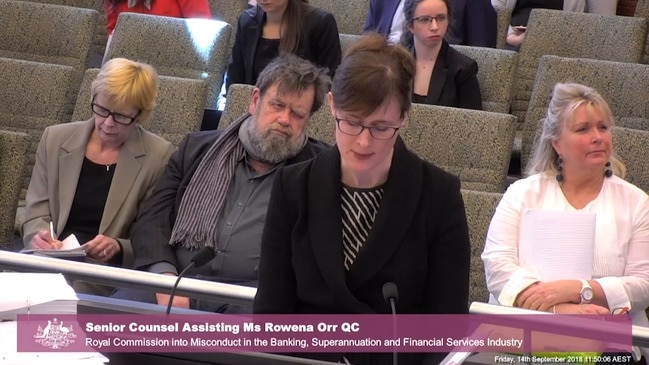Shady tactics to withhold payments revealed
A YOUNG woman who fell five stories and became a paraplegic had her insurance claim turned down by super fund REST and its group insurer AIA based on a technicality, the finance royal commission heard.

Business
Don't miss out on the headlines from Business. Followed categories will be added to My News.
A YOUNG woman who fell five stories and became a paraplegic had her insurance claim turned down by super fund REST and its group insurer AIA based on a technicality, the finance royal commission heard.
Counsel assisting the commission Mark Costello QC on Friday shone a light on the exclusions buried within the $9 billion of life and total and permanent disability insurance Australian’s pay through their super accounts which can prevent members getting payments.
INSURER FAKED CLIENT’S ILLNESS TO VOID INCOME PROTECTION
FREEDOM INSURANCE STAFF MOCKED COMPLAINT
About 12 million Australians have life insurance through superannuation, the commission heard.
Mr Costello pointed to the retail industry super fund REST which previously had exclusions including members needing to have a minimum of $3000 to access disability insurance.
Cover would also stop within 71 days if someone stopped working and contributions halted.
Insurance is provided to REST by insurance giant AIA.
The super fund directs up to $800 million in premiums a year to AIA, the commission heard.
REST service delivery manager Lachlan Ross told the commission that about 1.5 million people have life insurance through the super fund.
The woman who became a paraplegic was a REST member when working at McDonalds and had documentation showing she could get $108,000 if disabled.

The documents also included some limited references to those exclusion clauses.
Ms Costello asked REST’s service delivery manager Lachlan Ross why all the clauses were not in the document.
Mr Ross said they would be in the product disclosure statement.
The commission heard that when the woman made the claim it was initially approved by AIA who paid the $108,000 to the fund.
But before it was handed to the woman, REST’s external administrator picked up on technicalities, including that her account was below the required minimum, and alerted the insurer.

The REST trustee refunded the payment back to the insurer before the case had even been rejected, the commission heard.
The commission heard the woman was eventually paid out.
Mr Costello brought up another case in which a man who stopped working with his employer in May 2016 became permanently disabled in August.
His case was rejected by AIA and REST because he became disabled five days after the 71 day coverage period lapsed.

Meanwhile, the commission also heard how aggressive case managers at insurance giant TAL who helped hound a nurse with an anxiety disorder over six years went unpunished.
And a doctor who tracked the woman’s condition said her anxiety worsened over that six years, adding she was now permanently unfit for full time employment.
On Thursday it was revealed insurance giant TAL hired a private detective to spy on the nurse with an anxiety disorder — which included filming her at the swimming pool and kissing her partner — in a bid to disprove her case for income protection payments.
On Friday morning the commission heard TAL finally agreed to honour the policy in 2016, but only after six years of persistent harassment.
Counsel assisting the commission Rowena Orr QC provided evidence that the aggressive case managers had never been disciplined by TAL despite the insurer acknowledging it did the wrong thing in its treatment of the woman.
TAL general manager of claims Loraine van Eeden agreed the case highlighted a “deeply troubling response” to a legitimate mental health claim.
But Ms van Eeden denied its demonstrated an organisational wide problem.
“On this one claim yes, but I don’t want to make claims broader than that,” she said.


